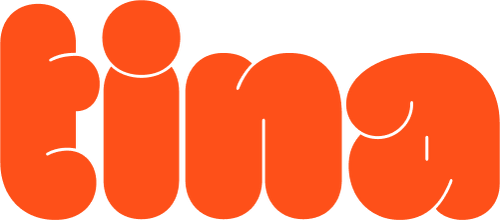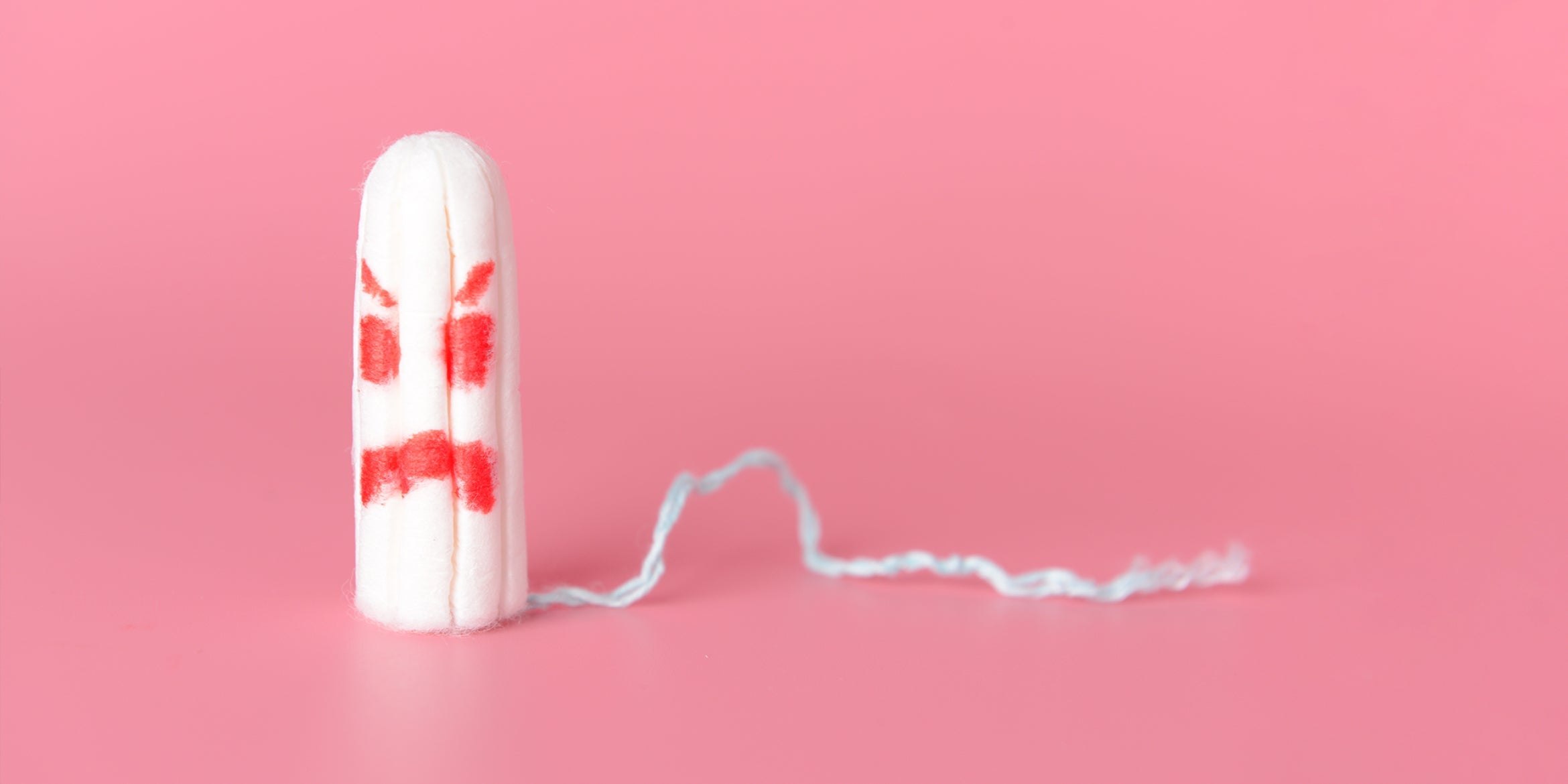Your daughter’s first experience with menstruation can set the stage for how she sees her changing body. If she has her first period without knowing what’s happening, she may feel ill-prepared, insecure, or just generally freaked out and bummed. But guess what—you can do something about it! You can help prevent these negative associations by talking to your daughter about her period beforehand, and setting her up to feel empowered and confident in her own skin. Let’s break down how to talk to your daughter about her period.
At what age should I talk to my daughter about periods?
When talking about periods with your daughter, the rule is simple: Start early and talk often. Menstruation typically begins around age 12 but can happen as early as 8. Conversations about periods might sound different with an 8-year-old compared to one with a 12-year-old, and that’s okay. You can keep conversations and answers simple with younger children to avoid overwhelming them with detailed information.
As your daughter approaches puberty—around 11 or 12—you can feel free to go into more detail about menstruation, its biological purpose, and the reproductive organs involved. Nearly 50 percent of girls will experience their first periods by age 11. But you don’t have to dodge questions and wait years to acknowledge the subject!
Honestly, even toddlers have questions about their mom’s behavior (if you’re a mom of small children, you already know bathroom privacy rarely exists!). So, if she sees you inserting a tampon or using a heating pad for cramps, use the opportunity as a teaching experience. Little by little, you may find yourself discussing periods around the same time your child is learning to talk!
Chances are you won’t have to initiate conversations about menstruation. Instead, your daughter’s brain, like a fluffy pink sponge, will absorb the information she learns as a child and build upon her knowledge of menstruation as she grows.
From an early age, children are naturally curious and might ask you questions like:
- “What’s that?” as you purchase a box of tampons.
- “Where do babies come from?”
- “Why do you have hair ‘down there’ and I don’t?”
If the questions make you uncomfortable—don’t panic. Remind yourself that it’s helpful for children to understand what’s happening with their growing bodies before puberty approaches. You can accomplish this by using every small opportunity to empower and inform your daughter about her own anatomy and natural bodily processes.
What if I have trouble talking to my daughter about periods?
Get in line! You're not alone if you’re uncomfortable talking to your kids about periods! Research shows that at least one-third of women feel awkward talking about periods to their children. Talking to your daughter about personal matters might not feel like a walk in the park, but empowering her with knowledge will help her develop confidence and appreciation for her body as she ages. So trust the process and embrace the awkward, darling.
When you’re caught off guard with a question about periods—no matter your child’s age—try to pause, breathe, and relax. Your daughter will pick up on your body language and demeanor, so consider “leaning in” to the conversation and viewing it as an opportunity to teach your child practical information.
While nearly half the global population experiences periods, attitudes surrounding menstruation haven’t always been accepting, open, or even kind. Considering more than 40 percent of women report being “period-shamed,” and similar percentages feel uncomfortable discussing their anatomy, negative stigmas definitely still exist. However, talking to your daughter about her period offers a chance to change the narrative and destigmatize the way culture shaped beliefs about menstruation in the past.
Some examples of what using positive, informative language to talk about periods with your daughter can sound like:- “When you have a period, you will bleed. Some days you will bleed heavily and some days you will only bleed a little bit. Both are normal parts of being healthy and growing and nothing to feel ashamed or scared of.”
- “Sometimes periods can cause cramps, a sore tummy, or feeling like crap tbh. But you’ll learn the things that help you feel better, like heating pads, warm baths, or in our case, chocolate.”
- “You may feel more emotional while on your period—and that’s totally cool, too! Your body’s hormones are adjusting.”
What Should I Say During the “Period Talk”?
During talks about periods, leading with positivity and transparency helps introduce puberty in a way that feels natural and straightforward. To accomplish this, you can keep an open door for conversations over the years instead of waiting for one big “period talk!” If your daughter has questions, answer them plainly. It might sound something like:
- “During your period, blood flows from your uterus out of your vagina. Most women, including you, experience it throughout their lifetime—and it’s normal.”
- The age at which most women start menstruating: as young as eight but generally between 10 and 15
- Her changing body during puberty: pubic hair growth, developing breasts, acne, body odor, and hormones
- What “pregnancy” entails: the fertilization of an egg with a male’s sperm
- Clarification about what the blood is: the inner lining of her uterus
- How often periods happen and how long they last: 28 to 30-day cycles for 7 to 10 days
Using scientific words for your daughter’s body educates her about her anatomy and most importantly, removes shame from the conversation! To do this, avoid words like “private part” or “time of the month” and try replacing them with what they stand for. For example, you can explain the difference between the vulva and vagina, and use scientific terms such as breast, menstruation, fertilization, and uterus.
Validating her feelings will support her in processing the changes that come with menstruation. Allowing her to lead conversations and answer questions as they come will also keep the door open for questions along the way. And if you’re ever unsure how to answer, it’s totally okay to respond with, “I’m not sure, but let me think about it and I’ll come back to you with an answer.”
How TINA Can Help Prepare Your Daughter for Her First Period
TINA is a product that simplifies how people experience menstruation and self-care. Not to brag, but it’s especially beneficial when you’re learning to insert a tampon for the first time.
Our customers have found TINA helpful for their daughters and young adults experiencing menstruation for the first time:- “I’m a pediatric occupational therapist working with children/teens with upper extremity disabilities—many of which have issues using their hands for hygiene such as tampon insertion.” — Justine
- “I have three daughters who are about to start their periods and this will be much easier. Easier for me too!” — Erica
- “I [am] interested in this product for my 11-year-old daughter who has spina bifida.” — Jacqueline
Try TINA Today
If your daughter is interested in using tampons, we’re here to help. Learn more about how TINA can help with tampon insertion, especially for those with limited mobility.
- Mayo Clinic Staff. Preparing your child for menstruation. 16 February 2022. [cited 2022 July 04] Accessed from: https://www.mayoclinic.org/healthy-lifestyle/tween-and-teen-health/in-depth/menstruation/art-20046004
- Montreal Children’s Hospital. Advice for moms: talking to your daughter about menstruation. [Cited 14 July 2022.] Accessed from: https://www.thechildren.com/health-info/conditions-and-illnesses/advice-moms-talking-your-daughter-about-menstruation
- Martinez, Gladys. Centers for Disease Control and Prevention. Trends and Patterns in Menarche in the United States: 1995 through 2013–2017. 10 September 2020. [Cited 14 July 2022.] Accessed from: https://www.cdc.gov/nchs/data/nhsr/nhsr146-508.pdf
- Age of Montessori. Why Your Child’s Brain is like a Sponge [Cited 14 July 2022.] Accessed from: https://ageofmontessori.org/why-your-childs-brain-is-like-a-sponge/
- Broster, Alice. Forbes. A Third Of Parents Feel Awkward Talking About Periods During Coronavirus, Study Finds. 07 October 2020. [cited 2022 July 04] Accessed from: https://www.forbes.com/sites/alicebroster/2020/10/07/a-third-of-parents-feel-awkward-talking-about-periods-during-coronavirus-study-finds/?sh=16b999c71453
- Litman, Jill. Berkeley Public Health Advocate. Menstruation Stigma Must Stop. 05 June 2018. [Cited 12 July 2022.] Accessed from: https://pha.berkeley.edu/2018/06/05/menstruation-stigma-must-stop-period/
- McHugh, Maureen C. The Palgrave Handbook of Critical Menstruation Studies [Internet].Chapter 32 Menstrual Shame: Exploring the Role of ‘Menstrual Moaning’. 25 July 2020. [Cited 12 July 2022.] Accessed from: https://www.ncbi.nlm.nih.gov/books/NBK565666/
- Eagles Landing OB/GYN. How Do I Talk to My Daughter About Her Period? 04 September 2019. [cited 2022 July 05] Accessed from: https://www.eagleslandingobgyn.com/talk-daughter-period/
- Alberta Health Services. Learning About Talking to Your Daughter About Puberty and Menstruation. 03 March 2022. [cited 2022 July 05] Accessed from: https://myhealth.alberta.ca/health/AfterCareInformation/pages/conditions.aspx?hwid=acj3025



